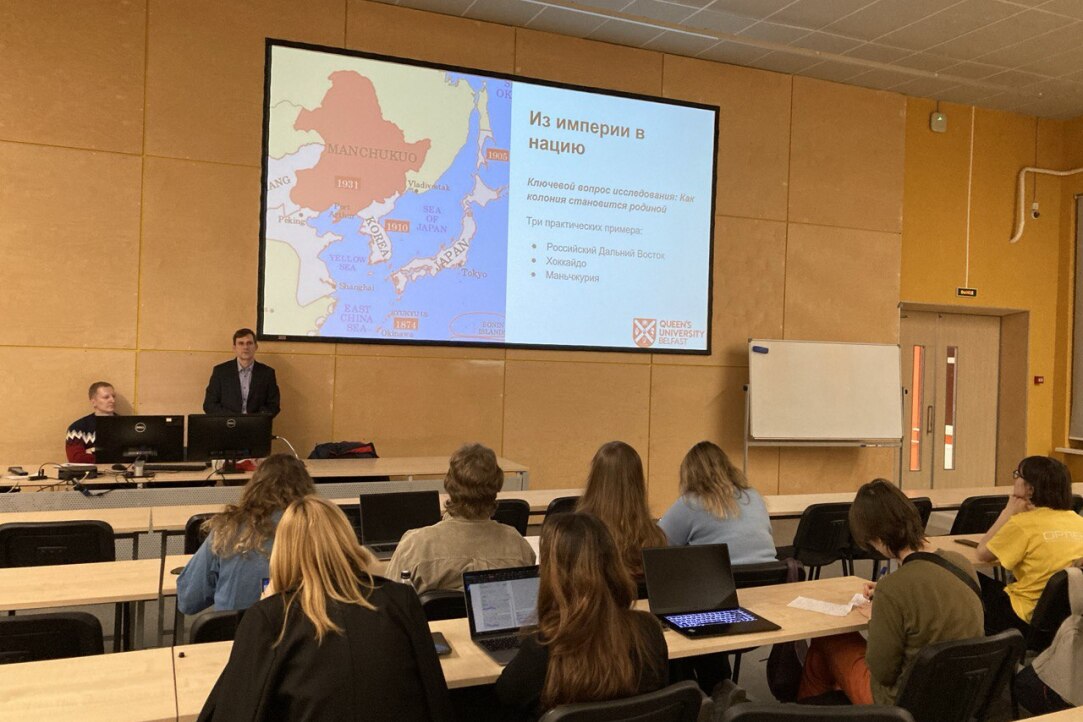Dr. Alexander Titov on the processes of "nationalization" of imperial territories in Northeast Asia in the late 19th to early 20th century
On December 22, Dr. Alexander Titov, lecturer on the Queen's University Belfast, gave an open lecture about the processes of "nationalization" of imperial territories in Northeast Asia in the late 19th to early 20th century. The event was organized within the framework of the regular research seminar held by the Center for Historical Research and the Department of History.

Alexander Titov's report was devoted to analyzing the processes of "nationalization" of imperial territories in Northeast Asia in the late 19th to early 20th century. The cases studied include the histories of imperial "domestication" of the Russian Far East, Japanese Hokkaido, and Chinese Manchuria. Despite differences in the details of nationalization programs, Alexander points out the similarities in the imperial toolkits.
An important conceptual framework for Alexander Titov is the notion of "geo-body," emphasizing the naturalness or, conversely, the artificiality and foreignness of borders in the national imagination. To conceive an expanded national geo-body a program of ideological and substantial transformations in the region was necessary. Alexander underscores the significance of imperial ideologies of civilizational mission, the cultivation, and settlement of “empty lands”. Colonization and infrastructural programs in new territories also contributed to the homogenization of the national space. Finally, narratives about these lands, primarily historical ones, played an important role. They inscribed the genealogy of new territories into the national canon, transforming them into "natural" products of the expansion of the national "body."
Subsequent discussion revolved around the repertoires of empires, the circulation of ideas and governance practices, as well as the terms used by historical agents and historians to describe colonization and appropriation processes.
